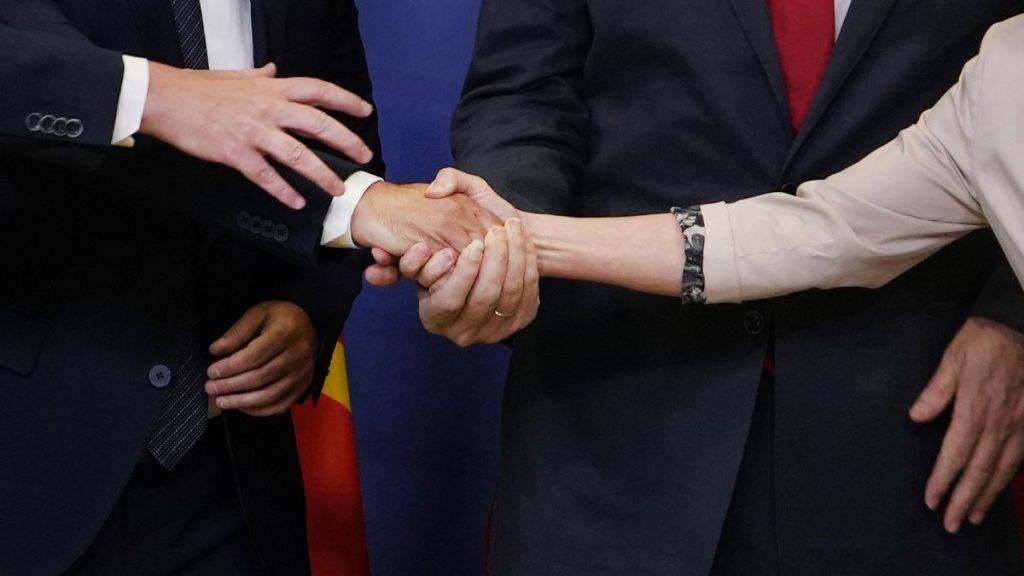EU hopefuls from the Western Balkans have faced a years-long delay on their membership path. Ahead of its flagship enlargement summit on 4 November, Euronews examines the reasons why the process has lost momentum in recent years and why some of the region’s citizens now have reservations.
Western Balkan countries have been pushing for progress for many years. Albania and Serbia applied to join the EU in 2009, Montenegro in 2008, and for North Macedonia the wait has lasted since 2004.
“Waiting for Godot”, a theatrical play where the protagonists wait for something that never happens, has become a favourite catchphrase of Albanian Prime Minister Edi Rama to describe the feeling that some candidate countries have towards potential EU membership.
“Albania (is) Estragon, the European Union is Samuel Beckett,” Rama said in June 2022, after a EU-Western Balkans summit.
Currently, nine countries aspiring to join the EU and hold candidate status are at various stages of the accession process. Seven of them have already opened the accession negotiations, the last stage of the path to membership.
However, the process has stalled on Brussels’ end at least since the time of the former European Commission led by Jean-Claude Juncker.
The process seems to have slowed down, much to the frustration of the leaders and the citizens of the region’s countries — until now.
The last country to join the EU
Croatia, the last country to join the EU in 2013, had to wait 10 years from the application to the final green light, while Romania and Bulgaria had to negotiate 12 years.
Western Balkan countries are still waiting, despite their efforts to align their policies and implement reforms. Yet, Russia’s war in Ukraine and rapid geopolitical changes have been among the key reasons behind the reinvigorated push to proceed with the enlargement process and Brussels’ strategic interest in welcoming new members.
The enlargement to the southeast is widely considered a key foreign policy tool and strategic priority in the EU as a whole, to the point that European Commission President Ursula von der Leyen rebranded it as “reunification of Europe” in her last State of the Union speech.
To join the EU, each country must meet a set of governance standards known as the Copenhagen criteria, established in 1993, with the European Commission evaluating their progress, and the final unanimous vote being up to the leaders of the 27 member states.


